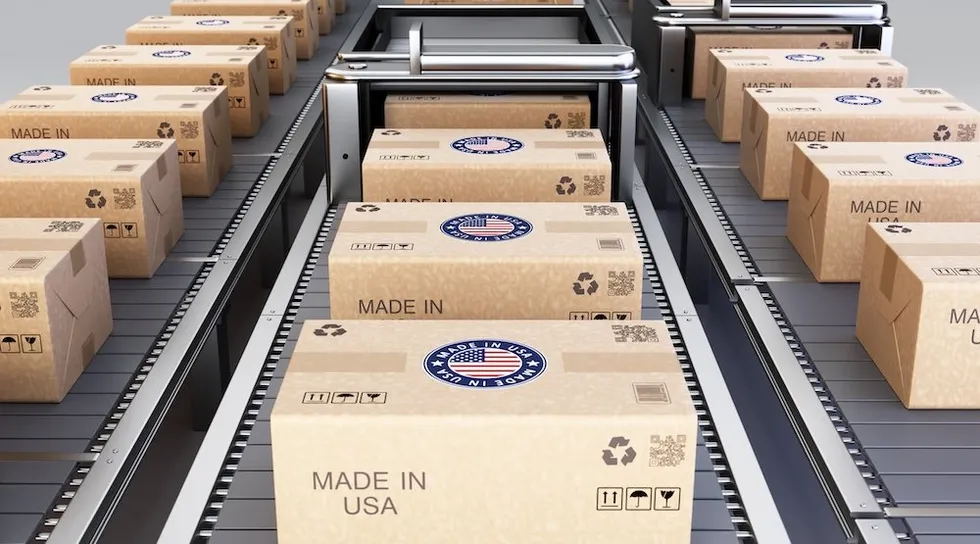Two Southern towns in different states share the same name: Hartsville. They were both chosen as future sites for nuclear plants in the late 1960s and early 1970s. One of those nuclear plants was completed and went online, helping to foster a thriving and prosperous community. The other plant was canceled, leaving a derelict cooling tower as a reminder of what might have been for the downtrodden town that has been economically left behind.
Hartsville, South Carolina, with its nuclear generating station, is thriving. Hartsville, Tennessee, with its for-profit penitentiary and abandoned nuclear project, is dying.
The ‘tale of two Hartsvilles’ shows the power of a town producing an actual product — requiring technicians, skilled tradesmen, and engagement with local businesses.
The Pamphleteer, a Nashville-based publication, published a piece by Hamilton Wesley Ellis titled “Atomic Hartsville: A small Tennessee town’s forgotten history as a nuclear leader.” The article draws a stark contrast between the two Hartsvilles — and explores what might have been if Hartsville, Tennessee, had completed its nuclear power plant.
But this story goes beyond one town’s missed opportunity and another’s industrial success. It serves as an allegory for a larger truth: Industrial vitality sustains American communities. Where industry thrives, prosperity and opportunity follow. Where industry dies, decline sets in — dragging despair in its wake.
A ‘tale of two Hartsvilles’
Ellis writes of Tennessee’s Hartsville:
Today the nuclear plant is quiet as the grave. Surely the town of Hartsville would look different had the plant’s four reactors reached criticality and provided power to the region. Since opening its doors in 2016, the private prison next door has had three fatal stabbings, three COVID deaths, and multiple cases of assaults on guards, mental health workers, and inmates alike. The prison’s short brutal history has firmly established it as a more dangerous place than any operational nuclear facility in US history, but at least they’re hiring.
The juxtaposition of a prison-based service economy and a nuclear-fueled industrial economy is certainly compelling, especially for those old Nader-ites still fighting against nuclear energy. Beyond the nuclear argument, the “tale of two Hartsvilles” shows the power of a town producing an actual product — requiring technicians, skilled tradesmen, and engagement with local businesses. This industrial ecosystem creates wealth, which is recirculated through a variety of other employers and supports an environment that enables a middle-class lifestyle.
If completed, the four-unit Hartsville facility would have been the largest nuclear power plant in the world.Photo by Karen Kasmauski/Corbis via Getty Images
To that point, Ellis observes:
The South Carolina Hartsville is home to a university, technical college, and the state Governor’s School for Science and Mathematics. Hartsville, Tennessee, has a Dollar General. Both towns have roughly the same population, give or take a couple thousand people, but extremely disparate vibes. One is a thriving community built on science and industry, the other a struggling village blanched gray by a very long run of bad luck.
Hartsville, Tennessee, is the story of too many such towns across the U.S. that have had a “long run of bad luck” — and that bad luck was no accident. It lies at the intersection of an America-last political mindset among our ruling class and a wicked business school philosophy that sees any labor expense as unacceptable.
RELATED: Comparative advantage was built on patriotism. That’s gone.

American jobs were outsourced to countries where working conditions often resemble slavery. That decision triggered an industrial collapse across large swaths of the United States. With the collapse came a cascade of local devastation. Community institutions fell apart. Economic activity dried up. Social pathologies filled the vacuum.
The so-called “principled free traders” who once cheered the offshoring of American jobs now ridicule those calling for the reshoring of industry. They claim automation made industrial labor obsolete. Andrew Yang, a former Democratic presidential candidate, often promotes this idea, as he did in a 2019 New York Times op-ed headlined, “Yes, Robots Are Stealing Your Jobs.”
Let’s bring workers home
Maybe so. But if that’s the case, then let’s reshore those plants that are using robotics. Transportation costs should decrease significantly. If labor expense is so “reprehensible,” aren’t transportation expenses also bad? Moreover, automation still requires human workers to build, service, and install the robots, as well as skilled tradesmen to do the plumbing and electrical work. Moreover, people will need to deliver products from the bays, handle deliveries, service vehicles, and so on.
Hartsville, Tennessee — with its decaying cooling tower looming over a long-abandoned project — stands as a monument to the dismantling of reliable energy and the destruction of industrial jobs. This is the green, globalist vision for America. By contrast, Hartsville, South Carolina, with its thriving industrial base and a product globalists love to sneer at, represents the America-first alternative championed by the MAGA movement.
Whether it is nuclear power, appliances, microchips, or any other product, industrial manufacturing drives local prosperity. It circulates money through the economy, creates stable jobs, and builds strong communities. The United States doesn’t just benefit from this activity — it depends on it.
Read the full article here






![Trump Says ‘No More ‘Mr. NICE GUY’ After China ‘VIOLATED ITS AGREEMENT WITH US’ [WATCH] Trump Says ‘No More ‘Mr. NICE GUY’ After China ‘VIOLATED ITS AGREEMENT WITH US’ [WATCH]](https://www.lifezette.com/wp-content/uploads/2025/05/2025.05.21-05.40-lifezette-682e1002e6a19.jpg)





